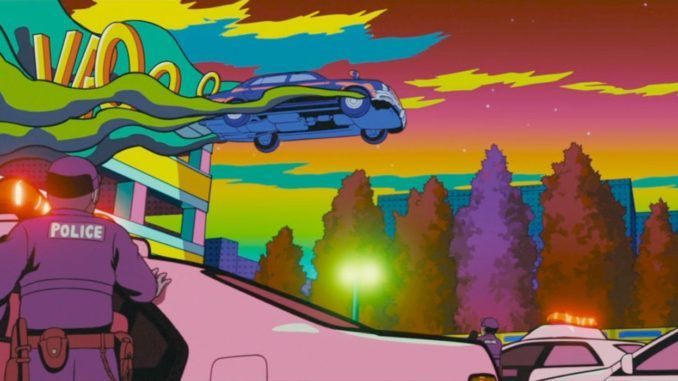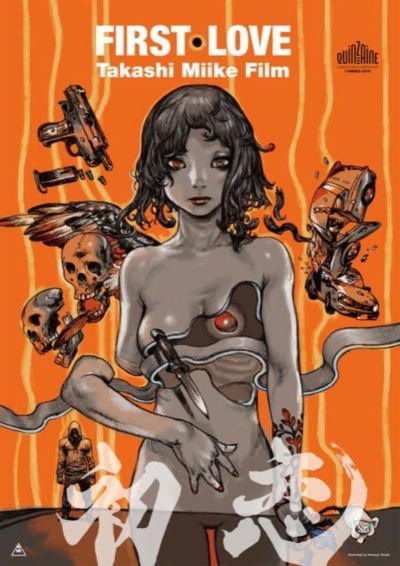
Rating: C+
Dir: Takashi Miike
Star: Masataka Kubota, Sakurako Konishi, Nao Omori, Becky
This is a typical Miike mash-up, throwing all manner of genres into the blender, and it’s to the director’s credit that it doesn’t quite implode under its own weight. The two central characters are Leo (Kubota) and Monica (Konishi). He is an up-and-coming boxer, who just received the devastating news that he has a terminal brain tumour. She is a junkie, forced into prostitution to pay off a debt to the yakuza run up by her father. Worse, she’s now being set up as the patsy for a drug theft, being carried out by corrupt cop Ōtomo (Omori) and his partner Kase, an act which could kick off war between the local gangsters and their Chinese rivals.
Adding to the complexity, nothing goes remotely as planned. Leo ends up punching out Ōtomo and rescuing Monica, while Julie (Becky), the girlfriend of the theft victim, is out for violent revenge. Monica’s location is being tracked through her phone, which leads all the parties eventually to converge on a hardware store. What better location for a series of hand-to-hand fights – during which Leo gets an unexpected update on his medical situation, as you do. I must admit, by the end, I was somewhat suffering from an overdose of plot, and lost track of who was who in the store. It felt like I was watching blenders go to war with each other, such was the relentlessness of the hacking and slashing.
 However, one of Miike’s strength has always been his ability to create interesting characters in broad brush strokes, and these are all people with whom it’s a pleasure to spend time, almost regardless of screen time. For instance, after Ōtomo gets knocked out, he’s tended to in the street by a passer-by, who tells him. “I may look like a drunkard now, but I’m actually a nurse… I only had a glass of beer and a couple of lemon sours. Nursing is too much pressure. Do you know how much I make? I mean, I’ll be 27 next year.” In twenty seconds of dialogue, we get a fully-developed NPC, and I felt genuine regret when Ōtomo staggered off in search of his police badge, leaving his good Samaritan behind.
However, one of Miike’s strength has always been his ability to create interesting characters in broad brush strokes, and these are all people with whom it’s a pleasure to spend time, almost regardless of screen time. For instance, after Ōtomo gets knocked out, he’s tended to in the street by a passer-by, who tells him. “I may look like a drunkard now, but I’m actually a nurse… I only had a glass of beer and a couple of lemon sours. Nursing is too much pressure. Do you know how much I make? I mean, I’ll be 27 next year.” In twenty seconds of dialogue, we get a fully-developed NPC, and I felt genuine regret when Ōtomo staggered off in search of his police badge, leaving his good Samaritan behind.
It feels a little generic: we’ve seen these kind of yakuza-based shenanigans often enough before, and there’s nobody here who can compare with some of Miike’s more memorable characters in this field, such as Ichii the Killer. Leo’s lethal illness is also a misstep, not adding much and then disposed of in a way which borders on a cinematic cheat code. However, there are still moments of pure Miike, such as when the film suddenly goes animated at the end (top) – probably cheaper than doing the actual car stunt in question. More of this would have kept the audience on their toes and avoided a sense of predictability which, for me, stopped this from entering the top tier of the director’s work.
